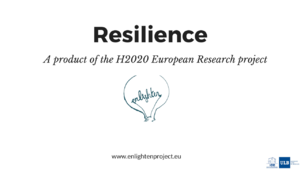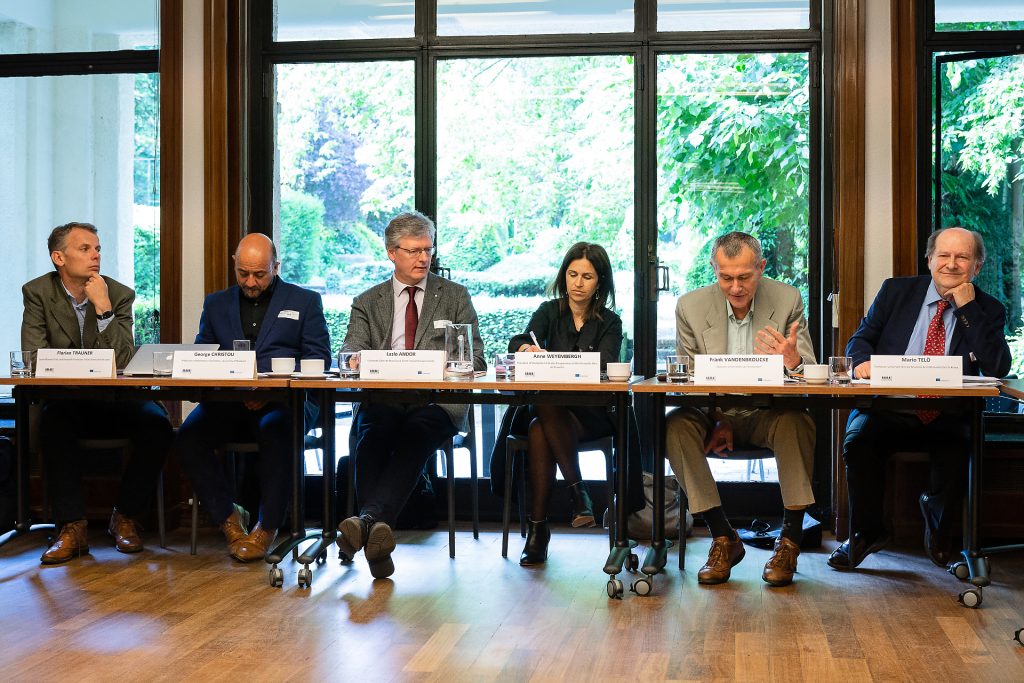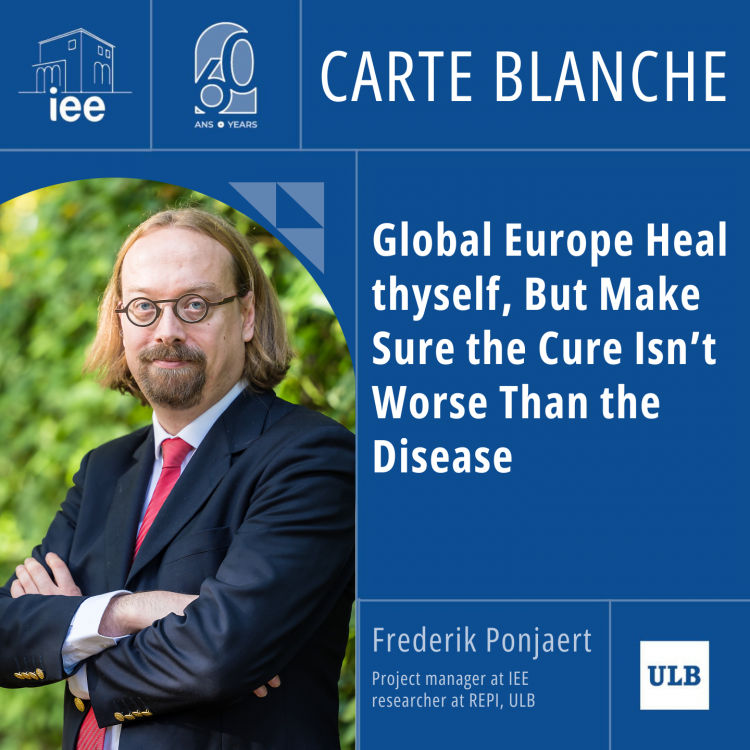On his arrival at the meeting of the European Council this past June 20th, French President Emmanuelle Macron pledged for a stronger euro “for a more solidary Europe” and emphasized the need for a minimum wage in each Member State, the need for more convergence[1] .
But solidarity was far from being the buzzword of neither this nor the subsequent gatherings of EU heads of state, that came together nearly a month after the European elections to “take the relevant decisions on appointments for the next institutional cycle and to adopt the EU’s strategic agenda for 2019-2024. They will also focus on climate, disinformation, the long-term EU budget and external relations,” according to the Council’s agenda[2].
In the midst of the controversy about the selection for the EU “top jobs” the IEE-ULB takes a step back to reflect on a debate on the perspectives for European solidarity after t
Copie de Copie de Copie de EUEA19 Agora Forum par Institut d’études européennes-ULB he elections.
Discussing the perspectives for European Solidarity
Last June 6, the prospects for European solidarity mechanisms in the aftermath of the 2019 elections was the central question of a meeting between policy makers, academics and civil society representatives reunited in an Agora Forum[3] in the context of the second biennial conference European Union in European Affairs (EUEA19). The conference, coordinated by the Institute for European Studies of the ULB in coordination with its homologue at the VUB and the University of Warwick, benefits from the support of the Jean Monnet programme.
The decisions taken by the Council will have a great impact on the future of the EU, including on European solidarity. The appointment of next European Commission president and the policies the next Commission will put forward may or may not shift the needle, policy-makers around the table underlined.
Questions to focus the debate
With a few thought-provoking questions about the state and the future of European solidarity by moderator László Andor, the debate began:
- Why are the existing structures (including legacy support instruments from the previous crisis) still not enough?
- What would be considered sufficient? Do we focus on survival, or aim for shared prosperity? Do we focus on ‘bits and pieces’ such as more insurances and helping the worst-off, or do we have to change the big picture and aim for the European Social Union?
- Moving ahead, what are the areas that need more progress? Some focus on civil society and social cohesion, while others want to include security, military and defence, climate and migration issues? How to unlock a stalemate in these discussions?
- Is there a trade-off between preserving EU standards and focusing on helping each other, and seeking to help others outside of the EU, including migrants?
- How to avoid slow economic growth and income inequality from turning into ‘an explosive cocktail’? Is there need for re-writing of the rules?
- Following the recent elections, is this the last chance to restore solidarity, and to create resilient and cohesive political structures?
Multiple solidarities in a grim context
Academics taking part of the debate highlighted the importance of looking at the multiplicity of solidarities, the trade-offs between the international, national, EU institutional and citizens’ levels and the potentially clashing and contradictory notions of solidarity each group may have.
Following the 2010 Eurozone economic crisis and the so-called refugee and migrant crises pessimism has cast a shadow on the EU’s future. Complex challenges lie ahead, participants in the Agora said. “On macro-economic level, not all member states felt the effects of the crisis the same way. The negative impacts focused in the Southern parts of Europe, in terms of convergence, pushing them back to the 1990s.”
 The documentary on the EU crises “Resilience” on the EU crises was produced in the context of the H2020 project ENLIGHTEN
The documentary on the EU crises “Resilience” on the EU crises was produced in the context of the H2020 project ENLIGHTEN
Public policy is much less equipped to respond to a potential crisis than ten years ago, they added. Politics play a role, some argued, in the difficulty to find common tools to enhance European solidarity.
“The member states have been reluctant to mutualize any problems. We don’t have a major element such as a fiscal trust to absorb shocks. Fiscal transfers are a major tool to respond in a time of crisis, but this is something the EU doesn’t have (compared to for example the US) and which is a major constraint.”
Over the course of the next five years, participants suggested, it would be good to see legislation on a framework of corporate taxation on the EU level. “You need to define some basic rules and a level playing field, however I would define this as collective action rather than solidarity.”
In terms of solidarity the existence of the structural funds was considered by participants in the Agora as limited tool. “We lack on EU-level an instrument that would allow the flow of funds to where and when they are most needed.”
Participants argued that current structures remain insufficient and some claimed the necessary measures must to lead to a state “where we cannot speak of sovereign default. We need policies, tools, mechanisms specially dedicated to convergence.”
Looking for solutions
Growth generation
Generating enough growth to boost Europe back in track remains a difficult endeavour. “In the current context, we see high debts, and performance in terms of productivity growth rate is not great. With 12 member states going to lose more than 3% of their working-age population, if we want to generate growth, we need to see more people join the active workforce. Europe is not performing very well in the capital markets, and technological shocks have uncertain outcomes especially in certain countries.”
Reaching out
Within the EU, some participants argued, a focus on inequalities within the member states can be key in finding ways to develop solidarity. The European Commission should work on, some participants said, on improving discussion on policies within the member states.
The private sector becomes also a territory to explore “The EU does not do enough to address enterprises. We have solidarity through secondary distribution (transfer policies, social policies), but you have also solidarity through primary distribution as wages, training, social enterprises. We should not forget the major role of enterprises in the solidary debate.”
External solidarity needs to be in the front seat of the debate too. “EU institutions should be much less inward-looking and work closer with international organisations such as the IMF, the World Bank on the key issues. We need more strategic reflection concerning how to cooperate on the global level.
In the future, keeping in mind the current unstable and unpredictable economic international context, participants said:
“We need to place the idea of solidarity into the discussions on the reform of global governance, in particular the better regulation of international trade.”
Intergenerational European solidarity
With a turnout of 50.62% (an 8 % increase since the last ballot), the European elections brought in a ray of hope in the future of the institutions. However, in terms of solidarity, tools to insure its existence for the future generations remain weak. “The next generation is not represented in current decision-making. Decision to not deal with public debt sees the government focus on providing for the workers and old people, not to the younger and future generations who will be in debt since they are born,” said some Agora participants.
Second tier solidarity
Defined as “readiness to share resources among a definitive group of people to support those with disadvantages out of their control,” solidarity at the EU-level could benefit from a for fiscal solidarity mechanism, “that is to say 2nd tier solidarity that allows support to national solidarity systems when it’s needed. This does not imply a European welfare state as one solidarity circle that takes over and replaces the existing circles – it’s solidarity between (national) solidarity circles with a second tier of solidarity.”
“The EU should be an environment that allows national solidarity circles to flourish; it should facilitate, support and promote national solidarity systems.”
Fully-fledged social union or step-by-step approach
One key question presented at the Agora was whether “we should go for ‘bits and pieces’ (employment scheme, minimum wage etc.) or for a fully-fledged social union.” The concern raised was that the first option would mean going for ‘external pretend’, a situation where we advance in very small ways as opposed to perhaps aiming for a fiscal and social union that could create the conditions to implement reform and new policies in a more substantial way.”
Minimum wage, in the opinion of some participants, is not just a simple tool.” It would be complicated to set up for sure, but would offer something concrete for people to grasp.”
For others, the European social union does not represent a ‘big bang’, but can rather serve as a benchmark, “guiding our thinking towards having a better idea of where we want to go, to have a clearer direction.”
One proposition: “There should be a convention on EU-level that every member state needs to have a universally applicable full-coverage minimum wage system, but at different levels, or for instance, a reinsurance of national unemployment systems. The advantage is that it is not intrusive, will not cash out money to individual citizens, but it will support our systems very well.”
Communicating EU solidarity
The advance of extremisms in some Member states in the European elections shows that an increasing amount of citizens in those countries feel they don’t benefit from European integration. “If we talk about solidarity, it needs to offer something concrete to the people. It’s economic performance that satisfies people and ensures the stability of democracies. We need something concrete, more than removal of roaming costs, which only benefits people who actually leave their areas.”
[1] https://video.consilium.europa.eu/en/webcast/af75836f-19bb-418d-8607-f7de396000a5
[2] https://www.consilium.europa.eu/en/meetings/european-council/2019/06/20-21/
[3] AGORA© methodology (Advocacy, Governmental Organizations and Researchers Associated). The goal is to structure the dialogue and international cooperation between academia, policy-makers and civil society. Gathered around a common topic of interest, these communities are ideally positioned to better understand and articulate on-going policies and possible future recommendations based on rigorous scientific research. Chatham house rule applies.




